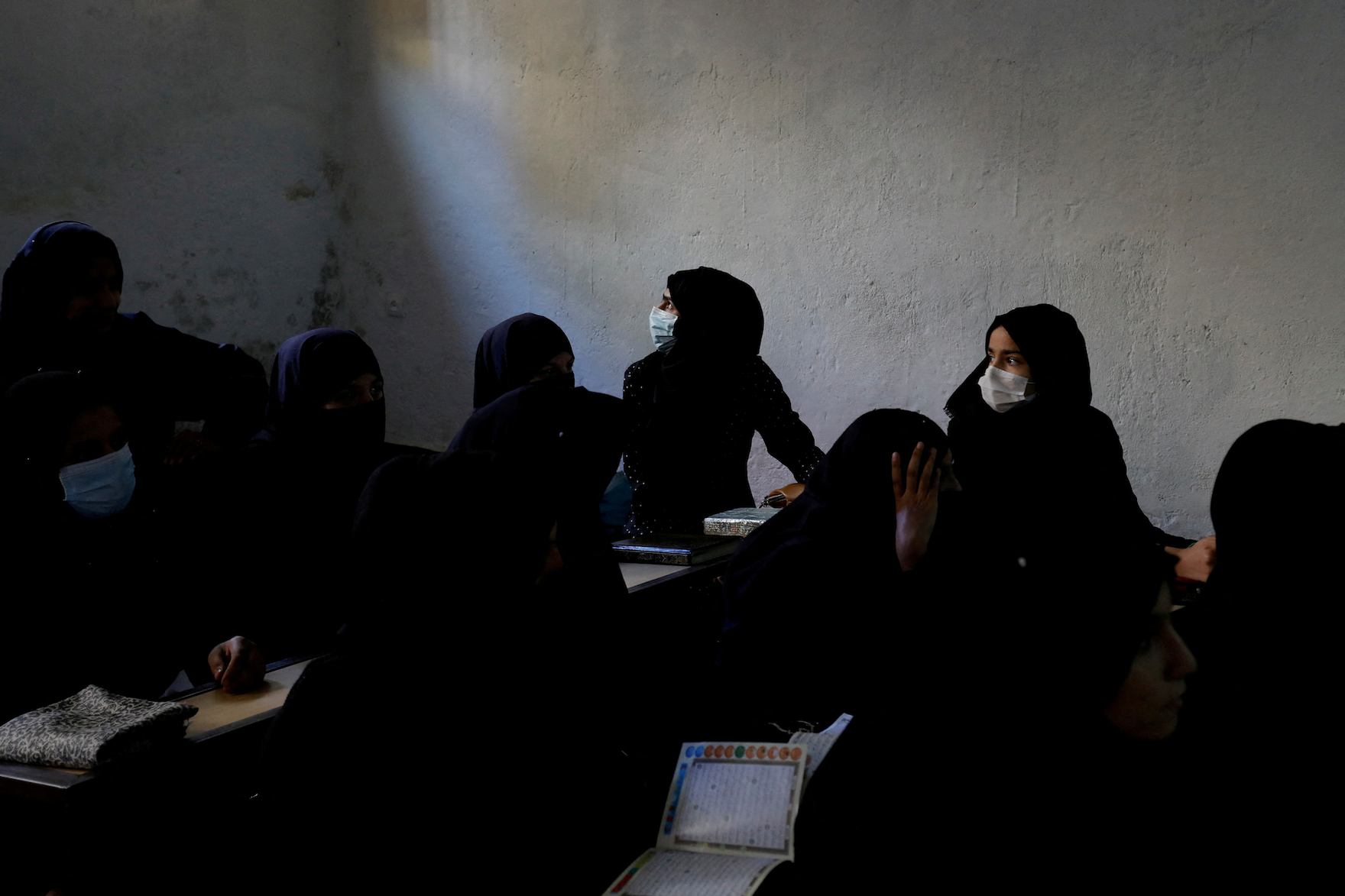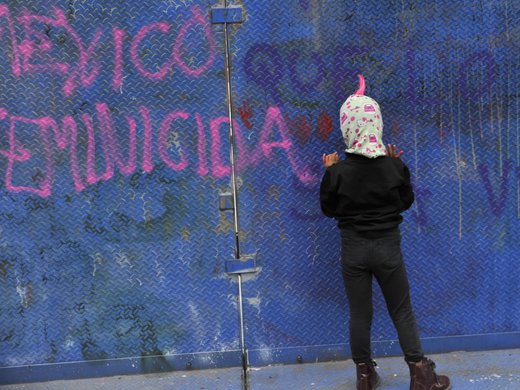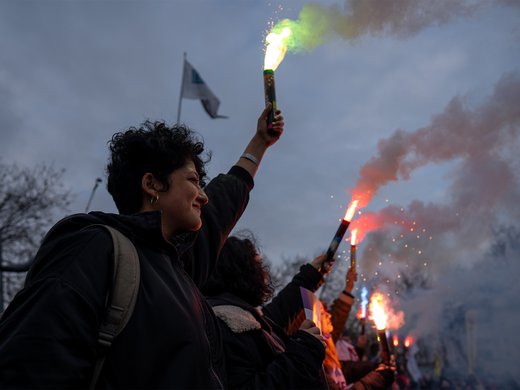The serious harms of war for civilian populations are not uniform. Women, girls and gender minorities are disproportionately affected by conflict and systematically excluded from its resolution and the reconstruction that comes after. International frameworks such as the UN Security Council’s Women, Peace and Security (WPS) agenda were established to address this very problem and have been adopted by national governments, militaries and security bodies.
Over the past year, we conducted a research project — to be released in late April 2023 — on militaries’ approach to gender and armed conflict, sponsored by the Dallaire Centre of Excellence for Peace and Security. We interviewed more than 50 experts on this topic in Canada and Ghana, including current and former Canadian policy makers, North Atlantic Treaty Organization (NATO) officials, and armed forces members, as well as grassroots activists and women-led organizations, and scholars of gender and conflict.
We have identified an alarming shift among some military bodies, away from a gender-responsive approach, in favour of generic human-centred policies that risk losing hard-won gains for women and girls affected by conflict. Here, we echo the voices of women activists, from grassroots women in conflict-affected contexts to those active in the high-level corridors of the United Nations, who were, and remain, at the forefront of this difficult work.
Advocating for Women, Peace and Security
In the 1990s, activists organized globally to draw attention to the impacts of conflict on women. This advocacy led to the adoption of the United Nations Security Council Resolution 1325 on Women, Peace and Security in 2000 — marking the first time the Council recognized the application of gender to security issues. Since then, nine ensuing resolutions, and a body of national policies — known as the WPS agenda — have served as a critical tool for policy and advocacy work at the intersection of war and gender.
As the arm of the security apparatus that interacts with civilians, military entities are a key target of the WPS agenda. Internally, they are riddled with major structural and cultural crises with gendered roots. The Canadian Armed Forces, for example, have dealt with waves of publicized sexual misconduct cases, including in 1998, 2014 and 2021. Acts of gender-based violence committed by NATO troops in missions in Lithuania and Kosovo also point to ongoing and problematic gendered issues within the alliance.
NATO first developed a policy on WPS in 2007 and has developed a plan for its implementation for the period 2021–2025. But despite the adoption of WPS, NATO has recently signalled a focus on a different security approach, “human security,” in response to “Russia’s war of aggression against Ukraine.” NATO’s June 2022 Strategic Concept declares its commitment to using a human security approach to crisis prevention and management.
The alliance’s public renewed focus on human security began even earlier, at its 2019 Leaders’ meeting in London. In 2019, NATO’s then-Secretary General’s Special Representative for WPS, Clare Hutchinson, established a new unit for human security — which falls bureaucratically under the Special Representative, alongside the alliance’s existing work on WPS.
Many entities do not have a definition of human security. Definitions that do exist are not aligned or compatible, and, in some cases, are in direct tension with one another.
But human security is not a new concept. It emerged in global security discourses in the 1990s, just as the WPS agenda was also emerging. At its core, the concept holds that security should be understood not only as it pertains to states, but also as it affects everyday people. For Canada and like-minded countries, human security became popular as a progressive approach to security at the turn of the twenty-first century. It later served as the conceptual foundation for other security approaches such as the “responsibility to protect,” a doctrine heavily supported by Canada but that lost much legitimacy after a devastating first application in the 2011 military intervention in Libya.
As human security becomes a renewed centre of focus for security bodies, its relationship with WPS remains uncertain: Should the two be merged at the policy or implementation levels? Should human security take over as the dominant approach? While NATO has not signalled a formal intention to merge these approaches, the shift is already under way at the working level. For example, some NATO gender advisers are choosing to change their titles to human security advisers, which they view as less likely to elicit resistance from those with whom they engage when deployed.
While informal, this shift is worrisome. It has the potential to erode dimensions of the WPS agenda that have been established through the hard work of women activists, policy makers, military decision makers and scholars.
What’s more, those with whom we spoke about human security, regardless of the sector in which they work, agreed that the concept is vague and often ill-defined. Many entities do not have a definition of human security. Definitions that do exist are not aligned or compatible, and, in some cases, are in direct tension with one another. For example, the United Nations Development Program’s 1994 definition of human security refers to it as a development principle underpinned with demilitarization, while NATO’s human security issue areas apply exclusively to military operations.
This lack of conceptual clarity is a major deficiency, allowing human security to become a catch-all justification for a wide range of approaches and political agendas. Human security is limited as a tool for addressing the harms of war because it is, or is made to be, gender-blind.
When policies are created to address the needs of a particular group, such as civilians affected by war, they do not reach everyone within the group equally. Those who benefit from multiple dimensions of privilege relative to others in their community are more likely to benefit from a generalizing policy such as “human security.” Men are more likely than women or gender minorities to be the default beneficiaries. The same logic extends to race, ethnicity, disability, language and socio-economic standing.
We found that the ownership of the human security approach is another major concern among grassroots activists and women-led organizations, as well as among scholars of gender and conflict. Where WPS is valued for its grassroots creation, its global feminist constituency and the civil society ownership of its implementation, the human security approach is seen by many as a liberal political project — one that was created by an elite few, then championed by Canada on the international stage and used as the foundation for military interventionism through doctrines like R2P.
Gender-Blind Approaches Don’t See the Gendered Impacts of War
In a world where human security is becoming the dominant paradigm once again, women working on the ground, activists and feminist scholars expect their work will be made even harder. The women we spoke to anticipate that they will have to take a step back from actually addressing gender issues to instead convince decision makers all over again that gender is relevant. Those who have dedicated years to advancing the WPS agenda within governments and military institutions expressed similar concerns to us and see the small corner of work carved out for WPS at risk of shrinking. This anticipated shift is especially concerning given the current global context of regression in gender equality and the rise in anti-gender movements. The potential for effective work addressing the gendered dimensions of war is further limited as funding from national governments and UN bodies follows the policy focus of institutions, away from women’s work on the ground in conflict-affected contexts and within the military itself.
For many advocates, replacing WPS with human security is a matter of erasure, rolling back an agenda that has served as an anchor for advocacy, on-the-ground peace building and research for the past several decades.
Human security is a noble idea that aims to provide a framework to address some of the most pressing issues of our time. But it mustn’t become a substitute for an important, hard-won stand-alone agenda with the express purpose of addressing the gendered dimensions of conflict.
The gradual shift to a human security frame — informally, without a major and explicit policy change — is what we have found perhaps most concerning. Human security has historically served as the conceptual foundation for military interventionism, and a renewed emphasis on human security at the practical level could signify a return to this mindset. The United States and its allies’ neo-liberal project to “save” women in Afghanistan has resulted, 20 years later, in horrific consequences for women and girls. Will there be another Afghanistan before the world acknowledges that a gender-focused security framework is vital and should be upheld?



